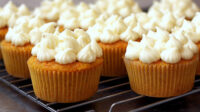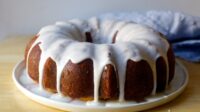pita bread
In 2018, I still make these as written — mostly. I’ve trimmed down some of the fussiness (and salt measured in .2 grams, for sanity sake) in hopes to get us to the point faster: really great, really simple pita breads. I’ve also finetuned the stovetop method, which I am still perfecting.
About 1 1/2 hours before shaping, or for best flavor development, 8 hours to 3 days ahead, mix the dough:
Mixer method: In the bowl of a stand mixer, combine all the ingredients with the paddle attachment just until flour is moistened, then switch to the dough hook. Knead for 10 minutes at low/medium speed. The dough should clean the bowl and be very soft and smooth and just a little sticky to the touch. You can add a little flour or water if necessary, but when I use the weights above, I haven’t found this necesarry
Mix by hand: In a large bowl, combine all the ingredients except for a scant 1/4 cup of the flour. With a wooden spoon or your hand, mix until all the flour is moistened. Knead the dough in the bowl until it comes together, then sprinkle a little of the reserved flour onto the counter and scrape the dough onto it. Knead the dough for 5 minutes, adding as little of the reserved flour as possible; it’s going to be very sticky. Invert your empty bowl over it and allow it to rest for 5 to 20 minutes, then knead the dough another 5 to 10 minutes, until it’s soft a little sticky to the touch.
Let the dough rise: Scrape the dough into a large oiled bowl. Press it down and coat the top with a little oil too. Cover the container with a lid or plastic wrap. With a piece of tape, mark the side of the container at approximately where double the height of the dough would be. Let the dough rise at room temperature for 1 1/2 hours, or in the fridge overnight (or up to 3 days), until doubled.
To bake pitas in the oven: Preheat your oven to 475°F 20 minutes before baking. Have an oven shelf at the lowest level and place a baking stone, cast-iron skillet, or baking sheet on it before preheating. Do not oil the skillet or baking sheet.
Shape the dough: Cut the dough into 8 or 12 pieces. Work with one piece at a time, on a lightly floured counter, with lightly floured hands, shape each piece into a ball and then flatten it into a disk. Cover the dough with oiled plastic and allow it to rest for 20 minutes at room temperature.
Roll each disk into a circle a little under 1/4 inch thick. Allow them to rest, uncovered, for 10 minutes before baking. Spritz lightly with water while resting.
Bake the pita: Quickly place 1 piece of dough directly on the stone or in the skillet or on the baking sheet, and bake for 3 to 4 minutes (less for small ones, longer for big ones). The pita should be completely puffed but not beginning to brown. The dough will not puff well if it is not moist enough. See how the pita puffs, then, if necessary, spray each remaining piece with additional water before baking.
Proceed with the remaining dough, baking 3 or 4 pieces at a time if using a stone or baking sheet. using a pancake turner, transfer the pita breads to a clean towel, to stay soft and warm. Allow the oven to reheat for 5 minutes between batches. The pitas can be reheated for about 30 seconds in a hot oven before serving.
To cook the pitas on the stove top: Heat a griddle or cast-iron skillet over medium heat. Lightly, very thinly, grease the surface and cook the pitas one at a time. Cook for about 30 seconds, then rotate the dough slightly (about a quarter-turn) and continue cooking for 1 to 2 minutes more. Small surface bubbles slowly grow to larger ones, and then eventually “find each other” merge and that becomes your big balloon pocket. Make additional small rotations if the process stagnates. The entire cooking process for each pita should be about 3 minutes.
Whole wheat variation: For a whole wheat version, use half whole wheat and half white flour, or you can make these entirely with white whole wheat flour — for this last option, you’ll need 1/4 cup extra water.



